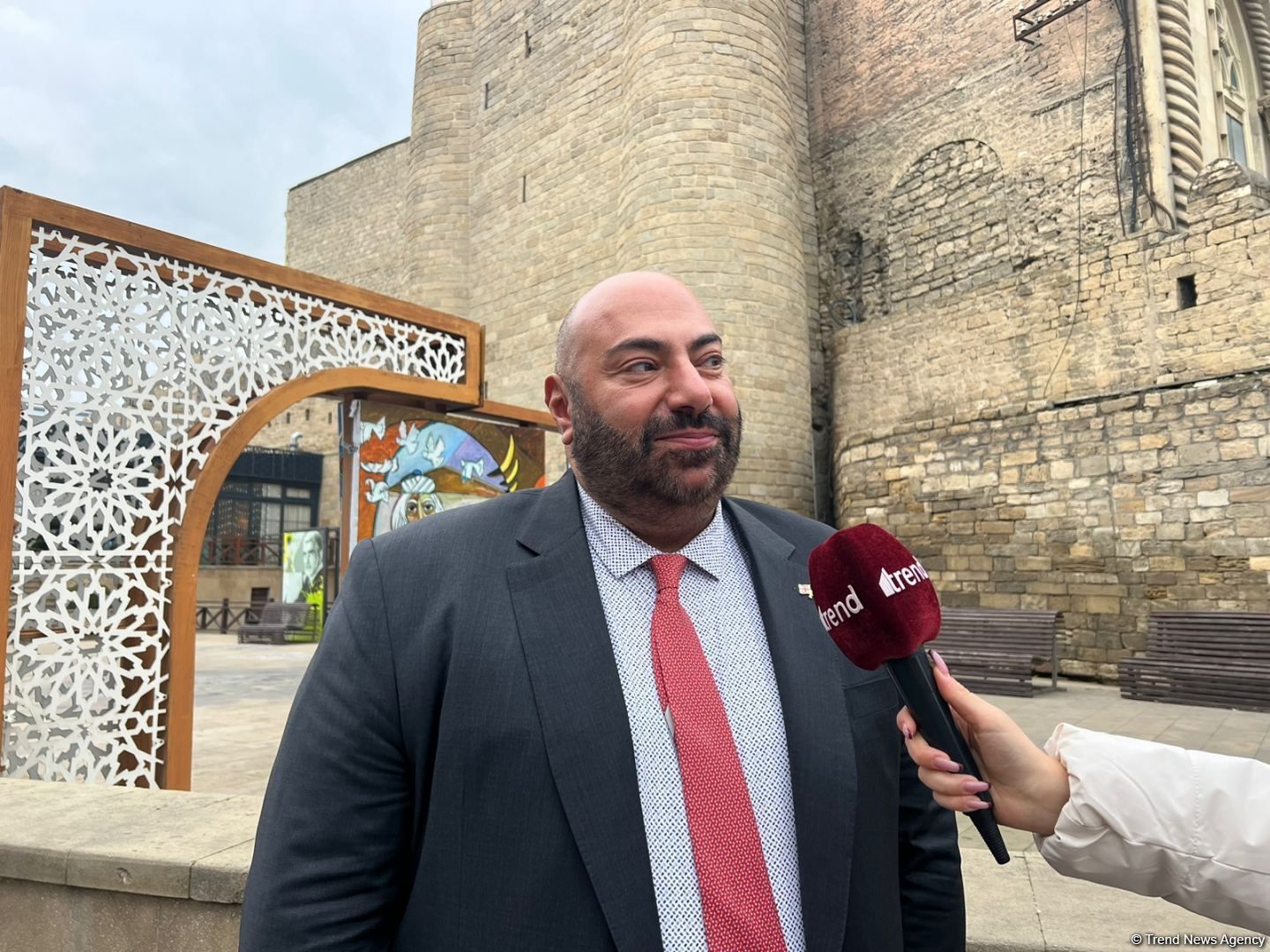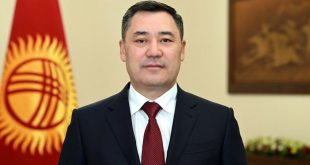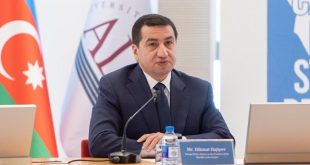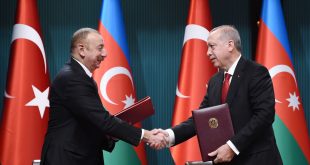
The UK considers energy, infrastructure, agriculture, ICT, healthcare, as well as financial and professional services, as the most promising fields of cooperation with Azerbaijan, Kenan Poleo, HM Trade Commissioner for Eastern Europe and Central Asia, told Trend in an exclusive interview.
“We have identified six sectors of the economy that we want to help grow through our joint intergovernmental commission,” Poleo said.
According to the trade commissioner, the total trade in goods and services between the UK and Azerbaijan from April 2021 through March 2022 amounted to 1.1 billion pounds.
He noted that the main exports from the UK to Azerbaijan include technology, engineering equipment and oil machinery, and services.
“Over thirty years of bilateral relations, the UK has been the single largest foreign direct investor in Azerbaijan. In 2021, we agreed with President Ilham Aliyev that our focus going forward will be supporting Azerbaijan’s economic diversification,” he said.
Additionally, the UK is the first international partner to support the work of the Azerbaijan National Agency for Mine Action (ANAMA), clearing land mines in Azerbaijan’s liberated territories. It is one of the most important programs that the UK Government is supporting in Azerbaijan at the moment, Poleo added.
Another priority in the Azerbaijani-UK cooperation is renewables, and, as the trade commissioner said, the UK is glad to see BP, its multinational oil and gas company, expanding into Azerbaijan’s renewable energy sector.
“In this regard, we welcome the agreement on the implementation of a 240 MW solar power plant project in Azerbaijan’s Jabrayil district, and look forward to its finalization,” he said.
As Poleo noted, over the thirty years of bilateral relations, the UK has been the single largest foreign direct investor in Azerbaijan, while BP alone has invested $84 billion in the Azerbaijani economy.
“I also hope the Government will make the best use of the masterplan developed by BP, which includes recommendations and proposals for decarbonization,” Poleo added.
The trade commissioner believes that Azerbaijan has great renewable energy potential, and this is the area where the UK-Azerbaijan energy cooperation should be expanded sooner.
“There are already over 40 British companies with clean energy capability on the ground. They know the market and have the expertise to help Azerbaijan deliver its renewable energy targets. We have hosted our first energy transition conference, where we invited leading companies from the UK to speak about clean growth, offshore wind and decarbonization. This clearly shows UK companies are interested in the Azerbaijani market and are ready to provide their products and services whenever and wherever needed,” he noted.
Moreover, the UK is ready to share its experience in offshore wind energy deployment with Azerbaijan, Poleo said.
“As a country with one of the largest installed capacities of offshore wind in the world and the largest pipeline of projects in Europe, we stand ready to share the UK experience of developing the industry with Azerbaijan,” he noted.
He went on to add that the UK has also helped fund the offshore wind roadmap for Azerbaijan which was launched jointly by the World Bank and IFC in June this year.
“We organized a visit to the world’s largest grid-connected floating offshore wind farm in Kincardine for the Azerbaijani delegation led by Minister Shahbazov later that month within the fifth session of the Joint Intergovernmental Commission between the UK and Azerbaijan. The UK is committed to achieving net zero emissions by 2050 which means that we have enhanced our capabilities across a wide range of renewable energy technologies. Through our government-to-government energy transition working group and MoU we are actively sharing the UK’s experience to help Azerbaijan develop a thriving clean energy sector, too,” he said.
Speaking further, Poleo noted that cooperation with Azerbaijan, as well as Central Asia, is a high priority for the UK.
“I oversee trade work across 14 countries across Eastern Europe and Central Asia. Recent data shows a 44 billion pounds trading relationship between the UK and these 14 countries. Central Asia is a key part of our success. That’s why we’ve recently invested more trade resources into Kazakhstan and Uzbekistan where think there is scope to do even more,” he said.
As the trade commissioner noted, increasing the capacity of the Trans-Caspian International Transport Route (TITR), which is one of the most important transport routes for Azerbaijan and Central Asia, is a priority for the UK government for diversifying supply routes from East to West.
According to the trade commissioner, the TITR, also known as the Middle Corridor, is important for the region’s economy and its importance after the Russia-Ukraine war started has increased even further.
“It can become an alternative or supplementary transit route for exports from China to Europe. The countries of the region started to work seriously on the increase of the potential for TITR. We understand that there is a need for investment to develop capacity and tackle various administrative and technical bottlenecks along the route, such as integrating document exchange and customs systems of the route countries, increasing vessel capacity to name a few,” he said.
Poleo pointed out that this requires joint efforts of the Trans-Caspian route countries, and the UK is ready to provide the required support whether it is related to digitization or capacity building for the ports, helping secure financing, engaging the private sector, or helping optimize railways operations.
 Oval Useful news from Azerbaijan and Caucasus
Oval Useful news from Azerbaijan and Caucasus


